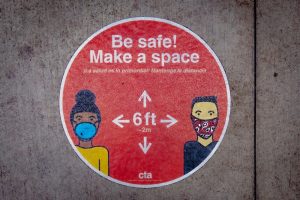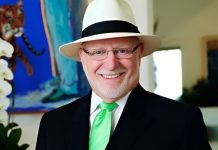Americans’ worries about catching COVID-19 have caused economic losses of up to $250 billion this year alone, according to Matthew Boyle, a Senior Reporter for Bloomberg.
The pandemic left many Americans homebound throughout the beginning of 2020 due to mandatory quarantines. However, now that vaccines are readily available and workers have migrated back to in-person roles, many are still skittish about COVID-19 due to a phenomenon known as “long social distancing.”
In a new research study from the National Bureau of Economic Research, it was found that 60% of respondents have not returned to pre-COVID activities such as riding public transit or returning to work in person. As a consequence, many of those people have opted not to return to the workforce altogether – upwards of 3 million people, says Boyle. The most common demographics in this group are female, aged 50 or over, those who aren’t high earners, and those who are not formally educated. When remote work isn’t readily available for these demographics, they would rather choose to forgo the workforce entirely.
Calculations show a loss in gross domestic product (GDP) of up to $250 billion as a result of consumers’ reticence to re-enter the world. Most have moved on from COVID-19, Boyle adds, but long COVID still is a huge concern among those with pre-existing health issues such as obesity, heart disease, or diabetes.
The report on Long Social Distancing also notes that those who have seen a loved one suffer serious effects from COVID are more likely to be hesitant to re-assimilate into society. And despite the severity of new variants or the effectiveness of safety precautions such as masks, researchers anticipate that Long Social Distancing will continue to be a phenomenon for the foreseeable future.
Ultimately, Boyle remains skeptical of the motives of those who are choosing not to work because of COVID – he tells Financial Advisor Magazine that “so-called brain fog” as a result of Long COVID have kept as many as four million Americans away from the workforce at any given time – a selfish move, he believes, when the economy is at stake.




















